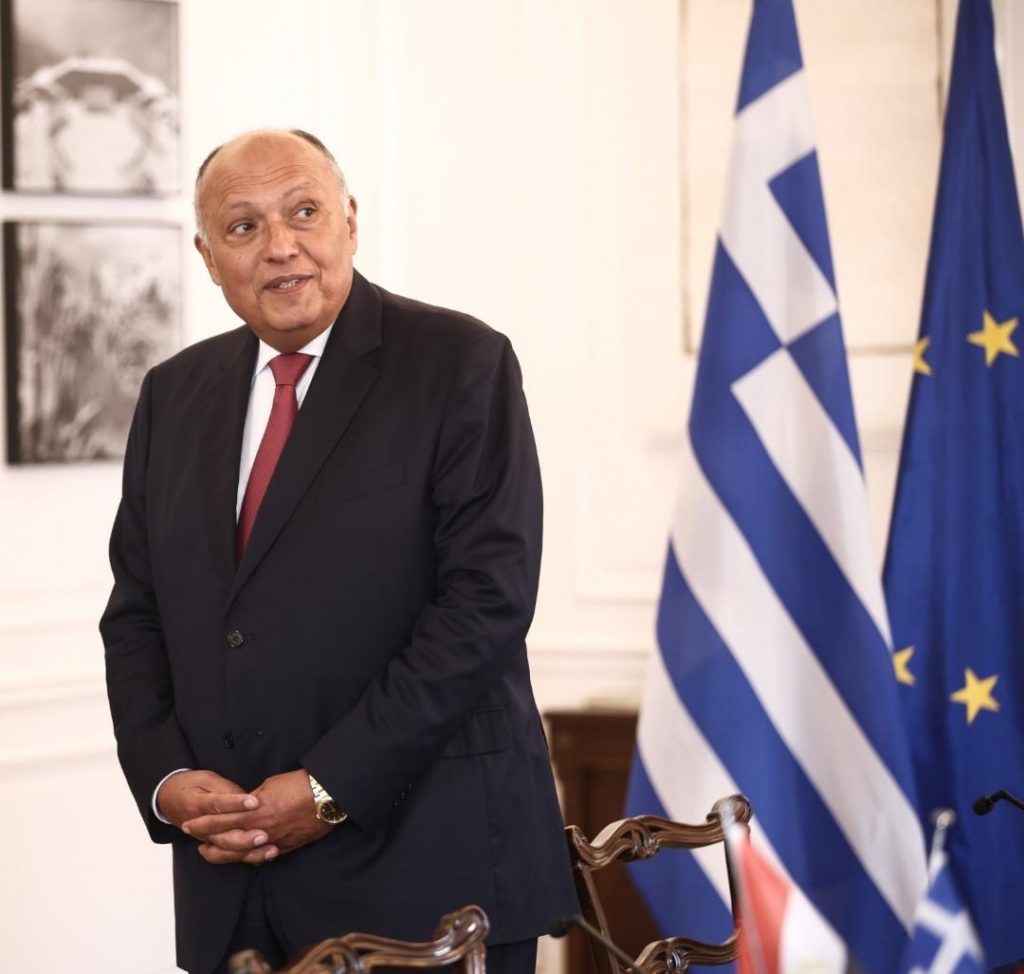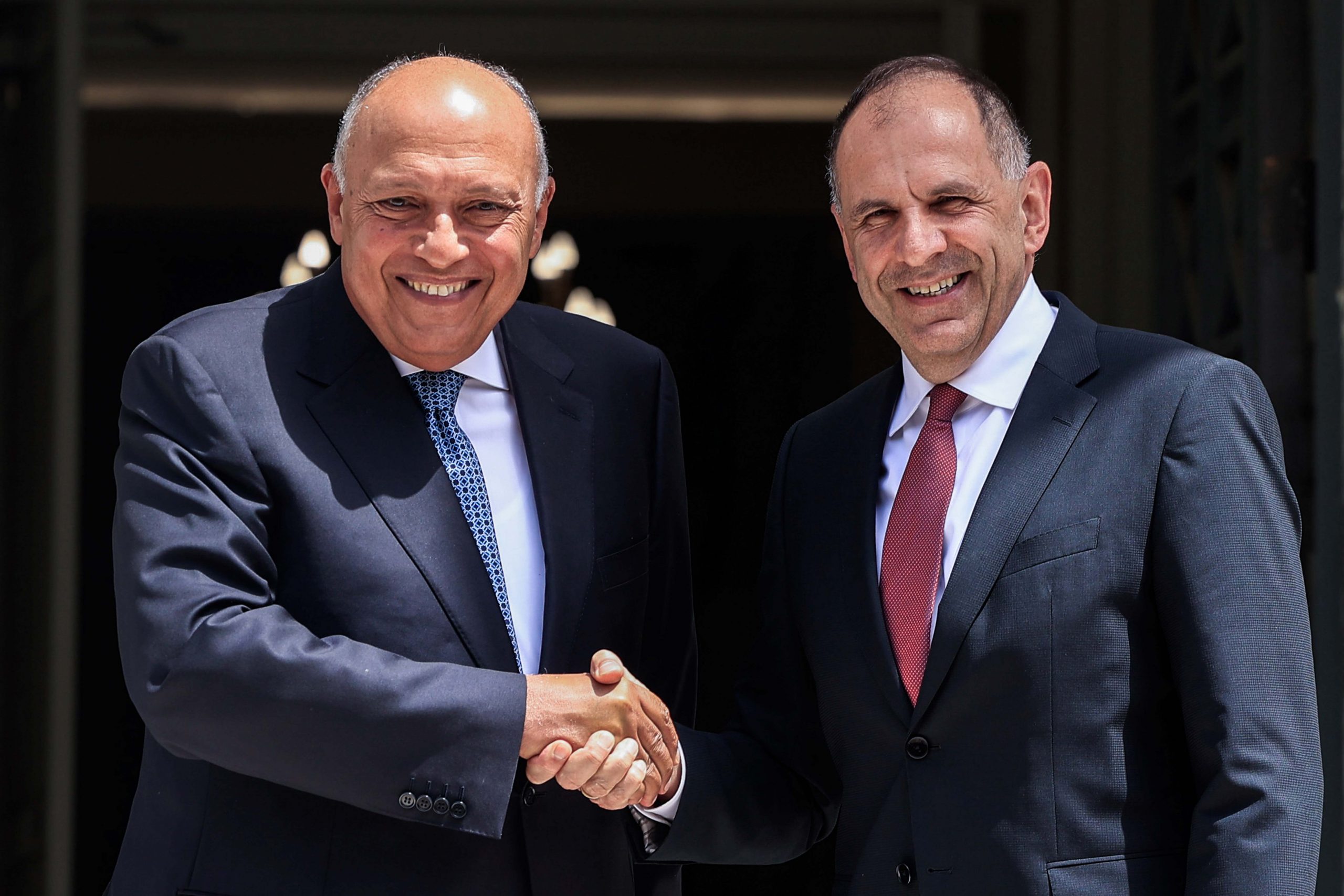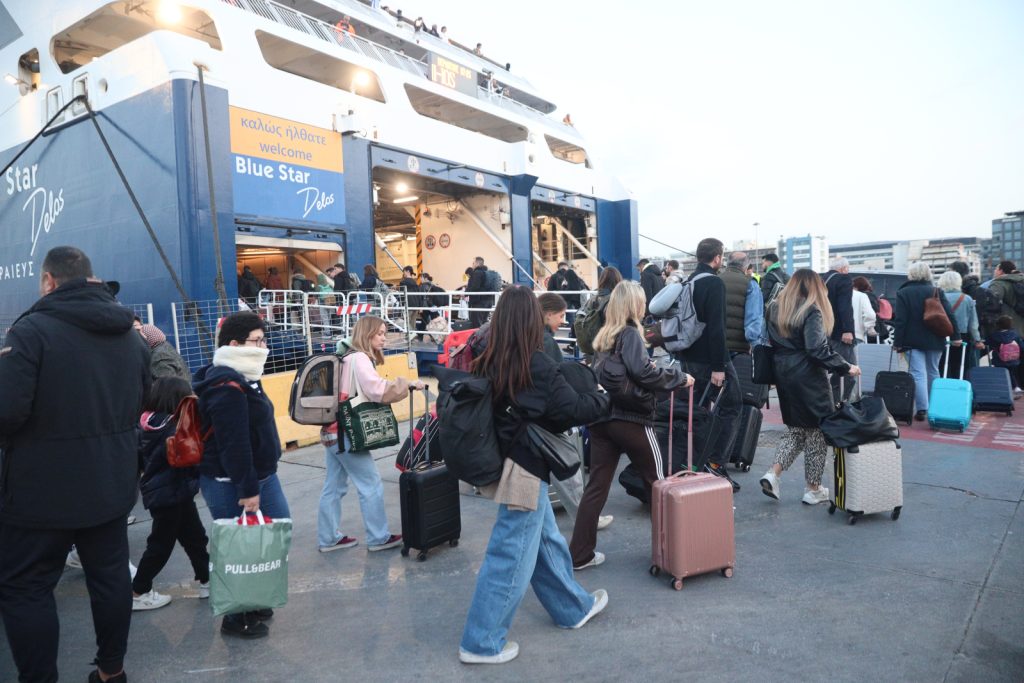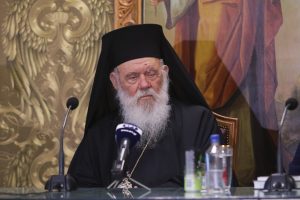Fresh from a meeting with his Greek counterpart, George Gerapetritis —whom the Egyptian foreign minister addressed in their joint statements as “minister”, “brother” and “friend”—Sameh Shoukry spoke to Ta Nea on Monday about the inaugural Greece-Egypt High-level Cooperation Council, which is expected to convene in the coming months.
The Egyptian foreign minister took the opportunity presented during his Athens visit to send a message to the European Union: if his country is to continue to bear the burden of the nine million migrants it currently hosts, it will need more support. Mr. Shoukry also stressed the need to implement the two-state solution as the only way to end Israel’s conflict with the Palestinians and to defuse the crisis in the Middle East.
What are your expectations of the 1st Greece-Egypt High-level Cooperation Council, and when is it expected to take place?
We look forward to upgrading our bilateral relationship and to the Council being chaired by their excellencies the President of Egypt and the Prime Minister of Greece. The Council will add a new impetus to the further development of Greek-Egyptian relations in areas of cooperation, as well as broadening that relationship politically, economically, culturally, socially and in every sphere of cooperation that has proved highly successful and productive for both our nations. We are always seeking to engage in new areas of cooperation. One of the most important is electrical connectivity. There is also potential for greater cooperation in the spheres of energy, renewables and clean energy, trade and migration. In preparation for the upcoming Council, we expect to develop new legal frameworks for cooperation, with the participation of the relevant ministries. The important thing is that we prepare ourselves well for it. President Sisi is looking forward to returning to Athens and meeting with the Greek Prime Minister.
How could the crisis in the Middle East be de-escalated?
It is time for the international community to move beyond supporting a two-state solution to implementing a two-state solution. Simply supporting a two-state solution is not enough, when there is no horizon for its implementation. In fact, doing so can only lead to new cycles of violence, confrontation and suffering for both the Israeli and Palestinian peoples. Resolving the conflict by establishing a Palestinian state eliminates the need for armed resistance to the Israeli occupation and opens the door to Israel’s full integration into the region, with cooperation, economic ties and relations established between its peoples. We hope that there will be those who support the creation of the Palestinian state and have the capacity to influence the situation, whether it be the US, EU member states, or the rest of the international community. We also hope that the Israeli government will both recognize that establishing a Palestinian state is in the interests of Israel, the region and the international order, and muster the political will to realize it.

How much has the EU supported Egypt on the migration issue, and what role has Greece played?
In an EU context, Greece has played a crucial role in shedding light both on the complexity of the situation in Egypt and the wider region, and on how we can address the challenges collectively. We are especially appreciative of the efforts Greece has made in this regard. We believe its assistance played a crucial role in the agreement that has been reached, and to the upgrading of Egypt’s relationship with the EU to strategic. We continue to rely on Greece for support. Our collaboration with Greece and the EU runs deep on the issue of illegal migration, which, as we have always argued, needs to be addressed in a holistic manner. We are always open to introducing, and benefiting from, Europe’s best practices. But Egypt currently hosts 9 million refugees, which it is allowing to assimilate into our society. Rather than building camps, we are creating secure conditions for the incomers. Egypt has always provided shelter to those who needed it. However, in the light of the sheer numbers involved, the economic impact and our limited resources, we expected Europe to be more supportive in this regard, with programs that would have permitted us to provide services to this large community of migrants, allowing them to stay in Egypt rather than facing the dangers of a Mediterranean crossing. It is in the EU’s interest to provide Egypt with more financial support, so we can address this issue effectively. The program that is currently in place is simply too limited in scale. We are currently engaged in discussions with our European friends. We recognize the limits that exist, but we also recognize the issue’s importance in many European capitals, where migration lies at the heart of the political debate in the run-up to the European elections. We have shouldered our responsibilities. And we now expect our friends and partners to support us effectively and in a way that takes the scale of the problem into account.
Do you think that Turkey is a stabilizing factor for the region or a force of unrest?
Looking ahead, we see that there have been signs of a desire to improve Turkey-Egypt and Turkey-Greece relations. We believe that this is a productive route to reducing tensions in the Eastern Mediterranean and to embarking on open discussions addressing contentious issues. Maintaining a healthy relationship based on mutual respect, respect for sovereignty, the principles of non-interference in domestic affairs, and neighborly relations can only be beneficial in terms of bilateral relations and security in the Eastern Mediterranean, which allows us all to focus on the interests of our nations.
Is the time approaching for agreements on the delimiting of maritime zones in the Eastern Mediterranean?
Our own experience of demarcating our maritime borders with Greece proved very positive. We believe that discussions should be held within the framework provided by the international law of the sea and the principles that have been agreed, so that we can all define our rights and responsibilities in relation to making full use of the Mediterranean’s marine resources more easily. For our part, we would like to see an ongoing debate that will produce agreements. Still, it will be a long and technical process to which the participating parties will need to bring a sense of responsibility, moderation and compromise.



